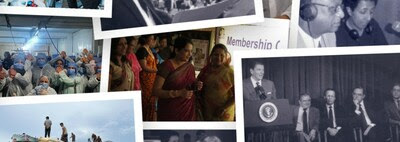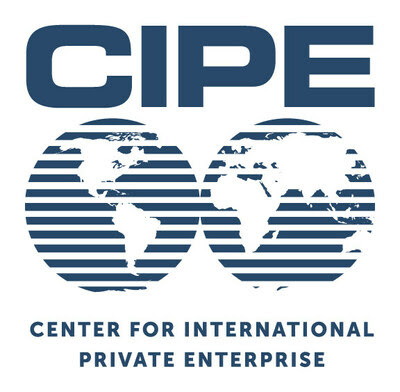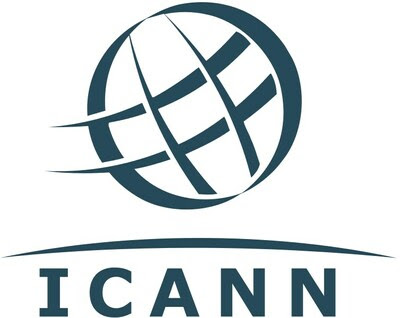New York, NY, Feb. 01, 2023 (GLOBE NEWSWIRE) — FOLK HERO , [INVNT GROUP]’s brand strategy firm, is expanding its global operations into Europe and the Middle East, growing its storytelling reach across the region.
, [INVNT GROUP]’s brand strategy firm, is expanding its global operations into Europe and the Middle East, growing its storytelling reach across the region.
FOLK HERO is a modern brand studio, brand consulting agency, and leading expert in global brand storytelling. The firm has led award-winning brand strategy campaigns for Loro Piana, Intimissimi, Sales Force, Tezenis, Walmart Media Group, Nurosene and more.
Ben Mainwaring has been appointed Chief Strategy Officer of FOLK HERO.
“As we continue to build on the strength of our global strategic offering, Ben brings great expertise in technology, purpose and innovation, that will help Folk Hero continue to successfully take brands into the future,” said Rob Klingensmith, CEO of FOLK HERO.
Mainwaring brings over 20 years of brand marketing strategy, new product development, and commercial strategy experience, specializing in automotive, emerging technology and systems innovation.
Mainwaring will be based in INVNT GROUP’s EMEA headquarters in London, supporting client work across the region.
“We’re thrilled to have this powerhouse resource on the ground in the EMEA region enhancing our capabilities for clients. Helping brands and organisations ensure that they are telling the best version of their brand story, and reaching the most relevant audiences is crucial,” said Claudia Stephenson, Managing Director of INVNT GROUP EMEA.
Ben Mainwaring joins FOLK HERO after 8 years as Founder at Matter, delivering strategy and innovation to private sector and governments clients across the US, Middle East, and Africa.
“I have known INVNT GROUP’s leadership for over a decade and have been so impressed by how the business has grown, adapted, and innovated over the years. I am joining FOLK HERO at a pivotal time in the evolution of the GROUP – advancing the agency’s brand strategy and storytelling power. I can’t wait to make my own contribution to the agency’s challenger mantra and broaden our offering to new markets and world-class clients,” said Ben Mainwaring, Chief Strategy Officer of FOLK HERO.
ABOUT FOLK HERO
Folk Hero, established by award-winning brand strategist Rob Klingensmith and part of [INVNT GROUP] The Global BrandStory Project specializes in bringing story strategies to the executive level, creating master brand narratives that act as brands’ operating and organizing principles. The firm helps its clients develop unusually compelling brand narratives, architecture, identity and tone-of-voice, all underpinned by a robust research methodology and deep understanding of contemporary consumer behaviors. For more information visit: www.folkhero.com
specializes in bringing story strategies to the executive level, creating master brand narratives that act as brands’ operating and organizing principles. The firm helps its clients develop unusually compelling brand narratives, architecture, identity and tone-of-voice, all underpinned by a robust research methodology and deep understanding of contemporary consumer behaviors. For more information visit: www.folkhero.com
ABOUT [INVNT GROUP]
[INVNT GROUP] THE GLOBAL BRANDSTORY PROJECT was established as an evolution of the founding global live brand storytelling agency INVNT in 2008, with a vision to provide consistent, meaningful, well-articulated BrandStory across all platforms. With offices in New York, Sydney, London, Singapore, Dubai, San Francisco, Stockholm, Detroit, and Washington D.C.; headed by President and CEO, Scott Cullather, [INVNT GROUP] represents a growing portfolio of complementary disciplines designed to help forward-thinking organizations everywhere, impact the audiences that matter, anywhere. The GROUP consists of modern brand strategy firm, Folk Hero; creative-led culture consultancy, Meaning; production studio & creative agency, HEVĒ; events for colleges and universities, INVNT Higher Ed; digital innovation division, INVNT.ATOM; creative multimedia experience studio, Hypnogram; and the original live brand storytelling agency, INVNT. For more information visit: www.invntgroup.com
THE GLOBAL BRANDSTORY PROJECT was established as an evolution of the founding global live brand storytelling agency INVNT in 2008, with a vision to provide consistent, meaningful, well-articulated BrandStory across all platforms. With offices in New York, Sydney, London, Singapore, Dubai, San Francisco, Stockholm, Detroit, and Washington D.C.; headed by President and CEO, Scott Cullather, [INVNT GROUP] represents a growing portfolio of complementary disciplines designed to help forward-thinking organizations everywhere, impact the audiences that matter, anywhere. The GROUP consists of modern brand strategy firm, Folk Hero; creative-led culture consultancy, Meaning; production studio & creative agency, HEVĒ; events for colleges and universities, INVNT Higher Ed; digital innovation division, INVNT.ATOM; creative multimedia experience studio, Hypnogram; and the original live brand storytelling agency, INVNT. For more information visit: www.invntgroup.com
Jhonathan Mendez de Leon INVNT GROUP jmendezdeleon@invnt.com
GlobeNewswire Distribution ID 8740864




